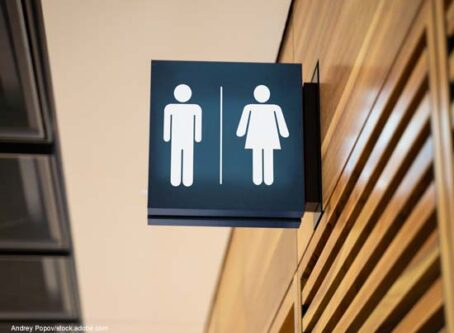Legislators in 12 states pursue changes to electric, hybrid vehicle fees
State legislators around the country are hammering out changes to supplement transportation funding via electric and hybrid vehicles.
In an effort to encourage people to pursue more fuel-efficient options, 45 states offer financial incentives for hybrid and electric vehicle owners. According to the National Conference of State Legislatures, less than 2% of all light-duty car sales across the nation are for electric vehicles.
Popularity for such vehicles, however, is anticipated to grow. As a result, state officials are increasingly concerned about the lost transportation revenue that could result from fuel-efficient vehicles.
The NCSL reports that 28 states impose a special registration fee for plug-in electric and/or plug-in hybrid vehicles. Fees range from about $50 annually for plug-in hybrid vehicles in Iowa to $225 yearly for plug-in electric vehicles in Washington.
Arizona
Two bills in the Arizona statehouse to tap alternative-fuel vehicles as a new funding source have taken different paths.
The Senate voted Wednesday, March 4, to advance a bill to impose an annual tax on electric vehicles and vehicles that use a combination of fuel and electric power, or hybrids.
SB1108 calls for collecting an annual $110 flat fee on electric vehicles. Hybrid vehicle owners would pay $44 per year.
A fiscal note attached to the bill shows the new fees are estimated to raise about $9 million each year.
The bill, SB1108, has moved to the House.
A similar House bill has met its demise.
HB2437 included a provision to collect an annual tax on electric vehicles and hybrids.
The tax rate for electric vehicles would be set at $111 the first year. In year two, the rate would increase to $139. The year after, the rate would be raised to $166.
Hybrid vehicles would be taxed at $45 the first year. The rate would increase to $56 the second year, and to $67 the following year.
Once fully implemented, both tax rates would be adjusted annually.
The bill did not advance from committee.
Arkansas
Two Arkansas Senate bills would reverse course on the state’s pursuit of additional revenue via alternative fuel vehicles.
In 2019, the state authorized an additional registration and annual renewal fee of $100 to be collected from hybrid vehicle owners. An additional $200 fee was applied to electric vehicle registrations.
The registration and renewal fees for hybrid and electric vehicles are estimated to raise $1.9 million annually.
The Senate voted unanimously on Wednesday to advance a bill that would reduce the additional registration fee and annual renewal fee for hybrid vehicles to $50.
Reduction of the annual fee is estimated by the state’s Department of Finance and Administration to reduce revenue by $1.1 million.
The bill, SB225, has moved to the House.
The second bill, SB117, calls for completely removing the additional $100 fee on hybrid vehicles.
The bill remains in the Senate Transportation, Technology and Legislative Affairs Committee.
Florida
Three Florida bills call for collecting more money from owners of electric and hybrid vehicles.
SB140 and HB819 would apply a $135 flat fee to license an electric vehicle up to 10,000 pounds. The rate would increase to $150 in 2025.
Affected vehicles weighing at least 10,000 pounds would include a $235 license fee. The fee would be raised to $250 in 2025.
Hybrid vehicle owners would be responsible for paying a $35 licensing fee. The amount would increase to $50 in 2025.
Revenue raised via the licensing fees would be deposited into the state’s Transportation Trust Fund.
A similar bill, SB1276, would implement fees on affected vehicles once electric and hybrid vehicles account for at least 5% of total vehicles registered in the state.
The bills await consideration in committee.
At that time, electric vehicle owners would pay a $200 flat fee and hybrid vehicle owners would be charged a $50 flat fee. Additionally, the rates would be linked to the consumer price index for annual adjustments.
Kentucky
Multiple Kentucky House bills would charge new fees to owners of alternative-fuel vehicles.
The first House bill, HB508, would charge a $150 fee on registrations of electric vehicles. Affected vehicles in excess of 10,000 pounds would be charged a $300 registration fee.
Hybrid vehicle owners would be charged a $75 registration fee and affected vehicles in excess of 10,000 pounds would be charged $150.
The fees would be adjusted annually based on the same federal construction index that would be used for gas and diesel rate increases.
A separate House bill, HB561, would add registration fees starting at $150 yearly for electric vehicles.
The bill includes other vehicle fee increases including fuel tax rate increases.
Both bills are in committee.
Minnesota
In Minnesota, the Senate Transportation Finance and Policy Committee has voted to advance a bill to increase surcharges on electric vehicles and hybrids.
Sponsored by Sen. Jeff Howe, R-Rockville, the bill would increase the surcharge for electric vehicles from $75 to $229. A surcharge of $114.50 would be collected on hybrid vehicles.
Both fees would be tied to the state’s fuel tax.
“Gas taxes run the risk of being regressive, but if EV owners contribute to this fund like every other car owner already does, we can avoid that situation altogether,” Howe said in prepared remarks.
“Electric vehicles are heavier than their gas counterparts, and as long as they’re benefiting from state roads, they should be paying to maintain them, too.”
SF1086 now heads to the Senate Taxes Committee.
Montana
One Montana House-approved bill would boost transportation funding would tap electric vehicles to help cover costs for road upkeep and construction. The fee would not apply to hybrid vehicles.
The bill would implement a new annual fee on all electric vehicles registered in the state. Specifically, affected vehicles under 6,000 pounds would be charged $150. Affected vehicles over 6,000 pounds would be charged $250.
House Transportation Chairman Denley Loge, R-St. Regis, recently told the House Transportation Committee the annual cost would be cheaper than what fuel-powered vehicle owners pay for pump taxes.
A fiscal note attached to the bill reports there are 996 electric vehicles in the state. The number of such vehicles is expected to grow annually.
The proposed fees are estimated to raise $241,350 by fiscal year 2025.
HB188 has moved to the House.
North Dakota
The North Dakota House voted 62-32 to advance an amended bill to increase the state’s fuel tax rate. Owners of alternative fuel vehicles would also pay more.
The state now collects 23 cents per gallon on diesel and gas sold.
HB1464 would increase the excise rate by 3 cents to 26 cents. Additionally, the $120 and $50 road use fees for electric and hybrid vehicles would be increased to $200 and $100 respectively.
The bill has moved to the Senate Finance and Taxation Committee.
Oklahoma
Electric and hybrid vehicles are the focus for collecting additional road revenue at the Oklahoma statehouse.
Bill sponsors say the effort is intended to ensure all vehicles using Oklahoma highways are contributing to the cost of maintaining the systems in a “fair and equitable manner.”
HB2234 would enact a 3-cent per kilowatt hour tax at public for-profit charging stations. Specifically, a vehicle with a 50kw battery could fully charge for a tax of $1.75 or less.
In-state electric vehicle owners would be eligible for a tax credit up to the amount of their annual registration for fees paid at public charging stations.
Advocates say the tax would allow the state to collect revenue from out-of-state vehicles.
Additionally, an annual vehicle registration fee would be applied for electric vehicles. The fee would vary based on vehicle model.
“While some states have passed laws that are punitive to the electric vehicle industry, the intent of this legislation is simply equity,” bill sponsors said in a joint statement.
South Dakota
On Wednesday, South Dakota Gov. Kristi Noem signed into law a bill to enact an annual flat-rate registration fee on many electric vehicle owners.
Previously HB1053, the new law charges affected noncommercial vehicle owners $50 annually for registration.
An estimated $8,000 annually will be directed to the state’s road maintenance fund.
Speaking on the Senate floor, Sen. Mary Duval, R-Pierre, said it is time for owners of electric vehicles to contribute to repairs to state roads and bridges.
“This is the right thing to do now to make sure we have good roads and bridges,” Duval said.
Texas
A Texas House bill would impose an additional fee for the registration and renewed registration of electric and hybrid vehicles.
Rep. Ken King, R-Hemphill, has introduced a bill, HB427, to collect an additional fee of $200 for electric vehicles and $100 for vehicles that use a combination of fuel and electric power, or hybrid vehicles.
In 2019, King introduced an identical bill. The effort received a public hearing but the House Transportation Committee failed to advance the bill.
Collecting the additional fees is estimated to raise $55 million over the next two years for the state’s highway fund, according to a fiscal note.
The bill is in the House Transportation Committee.
Utah
Citing concerns about discouraging the purchase of electric and hybrid vehicles, the Utah House voted 44-27 to kill an amended bill to increase registration fees.
The state now charges annual fees of $120 for electric vehicles. Annual fees are $52 for plug-in hybrids and $20 for hybrid vehicles.
HB209 called for raising vehicle registration fees over four years.
Specifically, the annual fee for electric vehicles would be increased to $240. The fee for plug-in hybrids would be raised to $180. Hybrid vehicle owners would not pay more.
All revenue would be deposited in the state’s Transportation Fund.
Washington
A Washington Senate bill would go the other way on fees for hybrid vehicle owners.
The state now charges a $75 annual fee on hybrids to fund electric vehicle charging stations. A $150 annual fee is collected on electric vehicle owners to benefit the state’s motor vehicle fund.
The bill would eliminate the fee on hybrid vehicles.
The Senate Transportation Committee held a hearing on SB5308 last month but took no action.
West Virginia
Two West Virginia bills would reverse course on the state’s collection of fees from owners of electric and hybrid vehicles.
A 2017 state law authorized the collection of annual fees totaling $200 on electric vehicles and $100 on hybrid vehicles.
HB2223 and SB94 call for ending collection of the fees.
Supporters say the change is needed to avoid penalizing residents who are encouraged to purchase fuel alternative vehicles.
The bills are in committee. LL
More state trends
Keith Goble, state legislative editor for Land Line Media, keeps track of many trends among statehouses across the U.S. Here are some recent articles by him.









